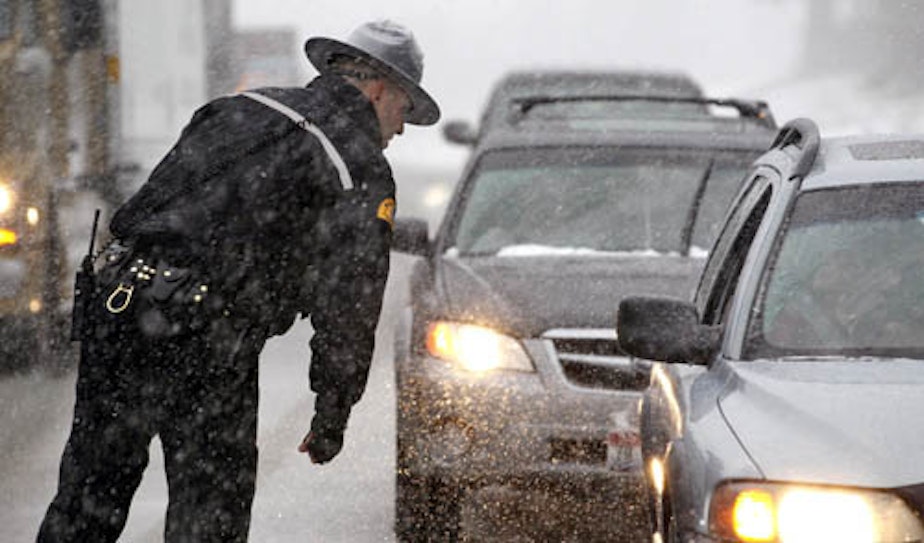Washington State Patrol Expects No Big Changes From Legalized Marijuana

Officials with the Washington state Patrol say about 8 percent of the drivers they pull over turn out to be impaired by drugs. A lab test verifying marijuana in the blood is a factor in showing driver impairment, they say, but there’s never been a legal limit the way there is for alcohol. That changes with the new law allowing marijuana possession, which takes effect Thursday, Dec. 6. It contains a new limit on marijuana components in a driver’s bloodstream.
Bob Calkins is the Washington State Patrol spokesman. He said the new limit doesn’t change how state troopers do their job. They’ll still pull people over based on driving behavior. “It takes so long for the blood test to come back after the actual contact and arrest that it’s going to be more of an issue for prosecuting attorneys and defense attorneys to hash out,” he said. “It really isn’t going to change what the trooper does on the street at the roadside at the time of contact and arrest.”
The Washington state Patrol also runs the state crime lab. Calkins said the impact there is not clear either – while there could be more blood tests on impaired drivers, there may be fewer tests to verify marijuana use in criminal cases.
A major question with the new law is how the federal government will react, since it still outlaws marijuana. An analysis by the state’s Office of Financial Management says the state patrol could have to return some federal grants and be denied others as a result of the law. Calkins said those federal grants help pay for the emphasis patrols that put more troopers on the roads around holidays. “We certainly hope that whatever the federal government does in response to this, they won’t attempt to influence our behavior by using traffic safety grants as a leverage point,” he said.
The state’s financial review predicts that more drivers will lose their licenses because of driving under the influence of marijuana. It estimates a 4 percent increase in the number of suspension and revocation hearings by the Department of Licensing. Those hearings are expected to generate $4.2 million in fees for the state over five years.

